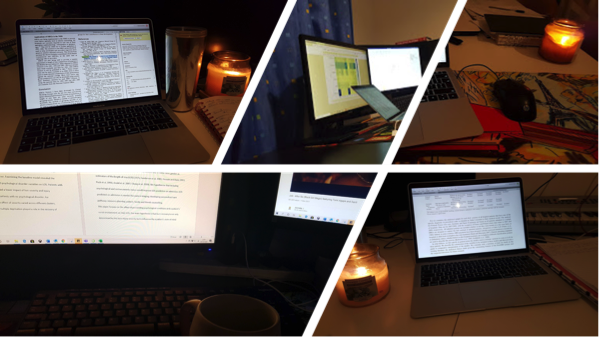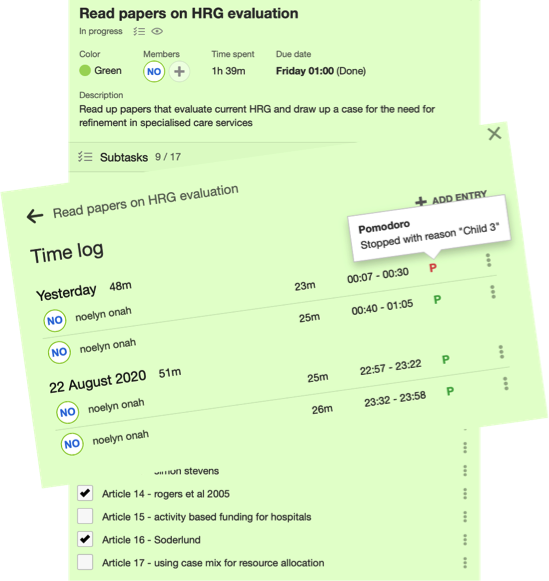There is no escaping the fact that 2020 has been an unprecedented year. One way or another we have all been affected, some of us more than others. It is important for us to recognise that things are not business as usual and to try to adjust working arrangements to fit into the ‘new normal’.
PhDing has always been known to be a lonely venture. For us in the Data and Analytics CDT, however, it came with the advantage of having a cohort of people going through a similar journey. This alleviates some of the loneliness that can come with working on a solo project. Some of the advantages of being in a cohort – grabbing coffee breaks together, asking for help for the coding error, or just breathing the same air – have been lost with the pandemic and all of us working remotely; some on ironing boards, others on dining tables and a few with a dedicated home office. Regardless of our working conditions, there are two key changes that we have faced: we are mostly doing our reading, writing and analysis in a confined space, and many of us are now doing this alone (possibly surrounded by family but this still does not equate to being surrounded by colleagues).

Figure 1: PhDing in a Pandemic – powered by candles
With this in mind, I asked fellow CDT colleagues to share some of the things they found made working from home easier, and thanks to all of those who responded, I have definitely picked up a few tips. I hope you find them as helpful as I did.
- Create a suitable working pattern– one of us says they are maintaining a proper working week, so working 9-5 and no work over the weekend or evenings. This I think is very useful, as routine and consistency is a sure way of getting things done. For me, a 9-5 workday isn’t possible, so I typically work from 10pm until about 12 midnight as my kids are all in bed and I have few to no distractions.
- Adopt the Pomodoro technique – this has been found to increase productivity. The technique, in summary, means you work four 25 minutes slots with 5 minutes break. After the fourth pomodoro, take a longer 20 minutes break and then start the cycle again. Another colleague advised the use of Kanban Flow which is an app with an inbuilt pomodoro clock and the ability to itemise and track a to-do list. With this, you can track what tasks has been completed (this gives a feeling of accomplishment) and you can document interruptions (this may give you insights to identify better a working pattern). I have just started using Kanban Flow myself (see below screenshot) and it has been very helpful in keeping me on track.

Figure 2: Kaban Flow Task list and Pomodoro Record
Pro tip – shut all socials down during work sessions (there are apps that help with this too).
- If you can, get a proper workspace which includes a desk, chair, monitor and/or laptop stand, keyboard, mouse, back support, basically the whole nine yards if possible. AND KEEP IT OUT OF YOUR BEDROOM (if you can).
- Change your work environment. This may be instead of working on your dining table, working outside, or using an ironing board in another room. With universities gradually opening up and some letting us book in days to work in the office and libraries, this should act as a good second location. Otherwise you might want to consider visiting a local café.
- Don’t feel guilty when you have less productive days, or you engage in things you love that are outside your PhD. Make it a habit to take weeklong breaks – we are entitled to annual leave.
- Join a shut up and write session with other PhDers – I want to try this; I probably won’t shut up though😜
- Identify things (PhD and non-PhD related) to look forward to, both short term – end of the day – and long term – a month or more.
- Another common tip shared is to Exercise. This helps to break up your day and keep you reenergised, it can be Zumba, yoga, walking, running. One of us said “Going for a run at lunchtime to distract myself has broken many a (code-related, writing) wall”. It works!
- Create some dope playlists to keep yourself company.
- Be kind to yourself!
I hope some of these make PhDing easier for you.
Article by Noelyn Onah